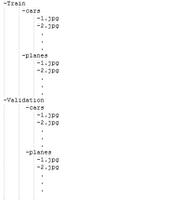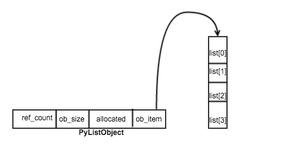Python在列表中查找项目索引的最快方法
如果要尝试在列表中查找某项的索引,则可以采用几种不同的方法来完成,这就是我所知道的最快的方法
aList = [123, 'xyz', 'zara','xyz', 'abc']; indices = [i for i, x in enumerate(aList) if x == "xyz"]
print(indices)
另一种方式不是pythonic且速度较慢
count = 0indices = []
aList = [123, 'xyz', 'zara','xyz', 'abc'];
for i in range(0,len(aList):
if 'xyz' == aList[i]:
indices.append(i)
print(indices)
第一种方法无疑是更快的方法,但是如果您想更快地进行操作,那该怎么办呢?对于第一个索引使用方法
aList = [123, 'xyz', 'zara','xyz', 'abc']; print "Index for xyz : ", aList.index( 'xyz' )
速度很快,但无法处理多个索引如何加快速度?
回答:
def find(target, myList): for i in range(len(myList)):
if myList[i] == target:
yield i
def find_with_list(myList, target):
inds = []
for i in range(len(myList)):
if myList[i] == target:
inds += i,
return inds
In [8]: x = range(50)*200
In [9]: %timeit [i for i,j in enumerate(x) if j == 3]
1000 loops, best of 3: 598 us per loop
In [10]: %timeit list(find(3,x))
1000 loops, best of 3: 607 us per loop
In [11]: %timeit find(3,x)
1000000 loops, best of 3: 375 ns per loop
In [55]: %timeit find_with_list(x,3)
1000 loops, best of 3: 618 us per loop
假设您想要一个列表作为输出:对于我的测试,所有选项似乎都表现出相似的时间性能,列表理解最快(几乎没有)。
而且,如果您对返回发电机感到很满意,那么它比其他方法要快得多。认为它并没有考虑实际对索引进行迭代,也不存储索引,因此无法再次对inds进行迭代。
以上是 Python在列表中查找项目索引的最快方法 的全部内容, 来源链接: utcz.com/qa/420739.html






